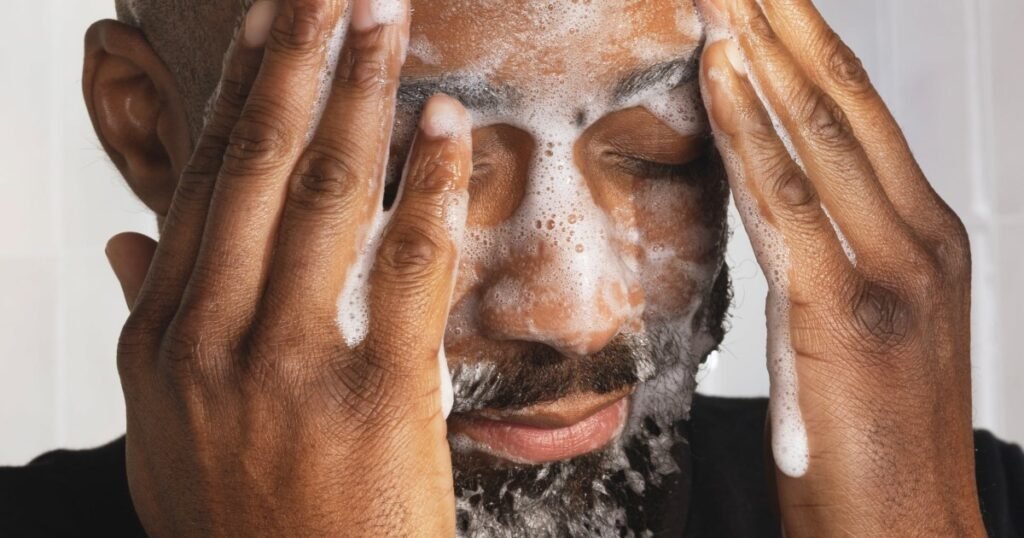The Ultimate Guide to Exfoliating: Everything You Need to Know for Radiant Skin
When browsing the skin care aisle, you’ve likely come across various products labeled as “exfoliating.” But what does exfoliation truly mean, and how can a proper routine transform your skin?
What is Exfoliation?
Exfoliation is the process of removing dead skin cells from the skin’s outermost layer, leading to a brighter, smoother, and more even complexion. Regular exfoliation can help to:
- Unclog pores, reducing acne breakouts.
- Enhance skin texture and tone.
- Stimulate cell turnover, minimizing fine lines and wrinkles.
Types of Exfoliants: Physical vs. Chemical
Exfoliants fall into two main categories—physical and chemical.
-
Physical Exfoliants: These use abrasive particles or textured materials to scrub away dead skin. Examples include scrubs and brushes.
-
Chemical Exfoliants: These utilize acids to dissolve dead skin cells and debris without scrubbing. Dermatologists often recommend chemical exfoliants as they tend to be gentler on the skin. Key ingredients include:
-
Alpha-hydroxy acids (AHAs): Water-soluble compounds like glycolic and lactic acid that shed dead skin on the surface.
-
Beta-hydroxy acids (BHAs): Oil-soluble acids such as salicylic acid that penetrate deeply to clear out pores.
-
Poly-hydroxy acids (PHAs): Larger molecules that exfoliate without penetrating too deeply, making them suitable for sensitive skin.
-
Expert Tips for Selecting Exfoliating Products
When choosing exfoliating products, consider your skin type:
-
Normal/Combination Skin: AHAs such as glycolic acid are effective options.
-
Oily/Acne-Prone Skin: BHAs like salicylic acid work wonders to unclog pores.
-
Sensitive Skin: PHAs are gentle and less irritating.
-
Dry Skin: Low-concentration glycolic or lactic acid exfoliants can help loosen dead skin without excessive dryness.
Recommended Exfoliating Products
To streamline your shopping experience, here’s a selection of expert-recommended exfoliants categorized by their best uses:
Best Facial Exfoliators
-
Dr. Dennis Gross Skincare Alpha Beta Universal Daily Peel Pads
- Benefits: Hydrating, targets pores, reduces fine lines.
- Considerations: Not suitable for dry or sensitive skin.
-
Tata Harper Regenerating Cleanser
- Benefits: Improves dull skin, non-irritating.
- Considerations: Higher price point.
Best Body Exfoliators
-
Naturium The Smoother Glycolic Acid Exfoliating Body Wash
- Benefits: Exfoliates and softens skin.
- Considerations: Gentle on sensitive skin.
-
Dove Exfoliating Body Polish
- Benefits: Moisturizing and gentle with creamy lather.
- Considerations: Great for sensitive skin.
Guidance on Exfoliation Frequency
Face: Experts recommend exfoliating 1 to 3 times a week based on skin tolerance. Always follow up with a moisturizer to protect the skin barrier.
Body: More frequent exfoliation is generally safe, with suggestions of 2 to 3 times per week, particularly for thicker skin areas like elbows and knees.
General Exfoliation Tips
- Choose the Right Time: Exfoliating at night can minimize sun sensitivity.
- Hydrate Post-Exfoliation: Use a moisturizer immediately after to lock in moisture.
- Avoid Over-Exfoliation: Signs include redness, irritation, and increased sensitivity.
Conclusion
Exfoliation can dramatically improve the look and feel of your skin when done correctly and consistently. By incorporating the right products suited for your specific skin type, you can achieve a healthier, more radiant complexion.
For more detailed information on effective exfoliation methods, consider visiting Healthline and American Academy of Dermatology.
Jumpstart your exfoliation journey today and enjoy the benefits of fresher, younger-looking skin!


